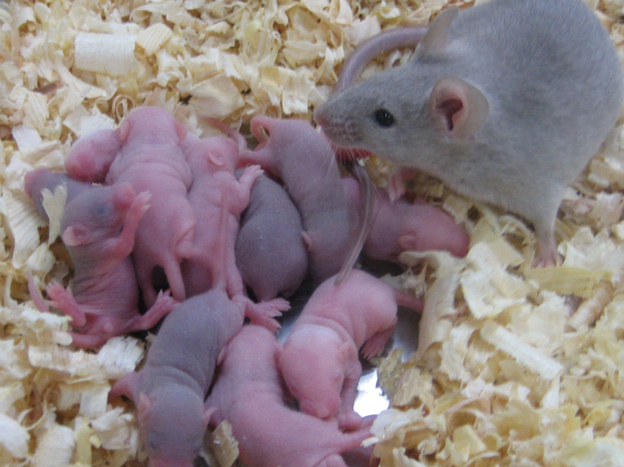 |
| Each of these mouse pups was born from an egg scientists created using embryonic stem cells. |
Alas, this will not apply to many of us currently in the throes of infertility. All is not lost. Many doctors are currently working on various cell technologies that apply to infertility. Autologous Endometrial Coculture is one example of a technology promising encouraging results. What does all that fancy wording mean? The short of is that they take cells from the lining of a woman's uterus and use them as a more natural environment for fertilized eggs than the previous methods. Studies have shown that in certain cases embryo development is improved, as are IVF success rates.
Dr. Patel's clinic in India is working with a similar concept: certain clients can qualify for the case study in which natural cells from the IVF patient are used to surround the egg pre-fertilization. They are seeing an increase in fertilized eggs and while it's too early to determine if this results in actual healthy babies born, I can say I was very impressed to learn that 3 out of 4 of my eggs were fertilized with this method. There is more to this method than I am [purposely] describing, but that is better left to the professionals or perhaps, when I can be less emotionally attached to the subject matter.
I have no idea if this will help the quality of my eggs/embryos in the long run, but it is still very exciting. My first cycle ended up with 2 eggs and only 1 of those fertilized. That 1 egg took over 24 hours to fertilize. On my second cycle (with the new protocol) I had 4 eggs extracted and out of those 3 fertilized. Like my first cycle, one of those was a late bloomer, but maybe it's the one implanted now and thus causing a lower hcg. Apparently my case is not an anomaly as the Akanksha Infertility Clinic is seeing really encouraging results with women that qualify for the case study. Even if it doesn't work for me, I will be really excited if this helps improve success rates for women in general.
Science is so cool.

This is such an interesting post and I love your perspective on your kindness in hoping it works overall for women. You're wonderful, remember that x
ReplyDeleteTruly interesting, thank you for sharing!
ReplyDelete